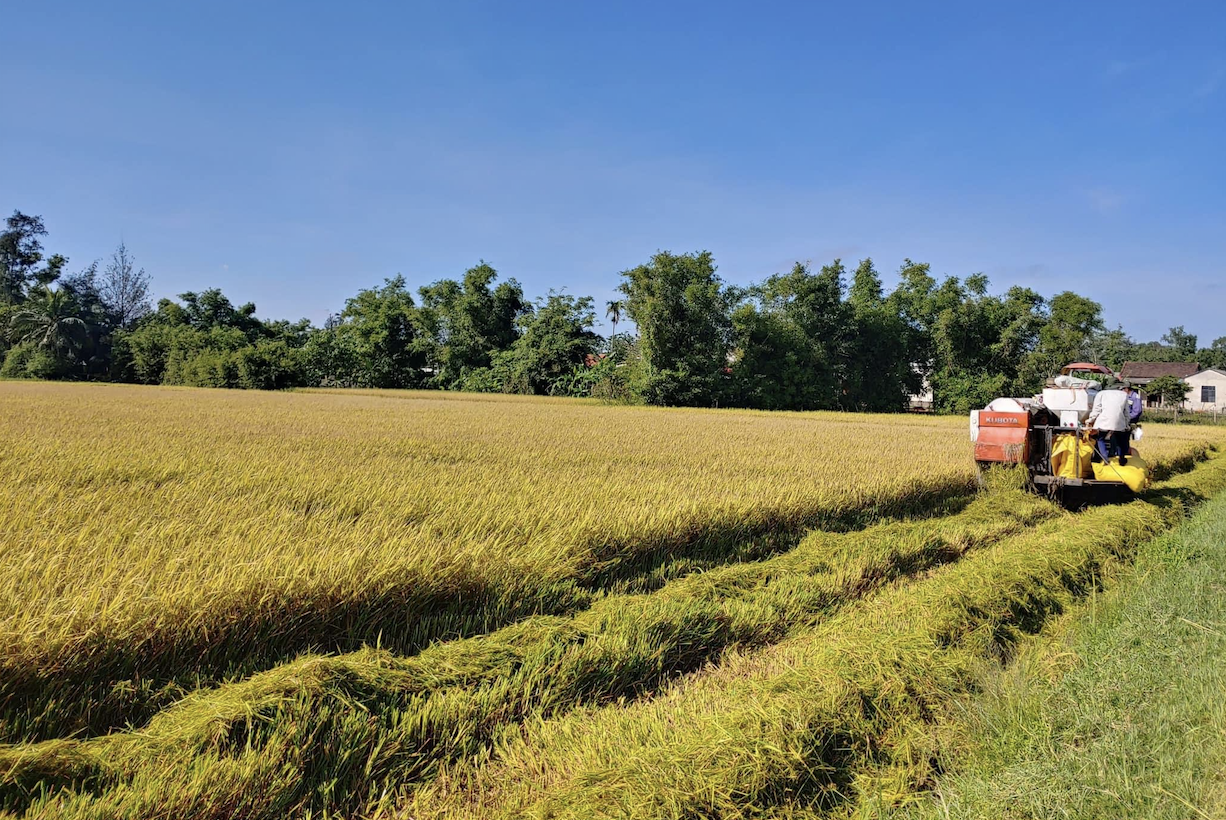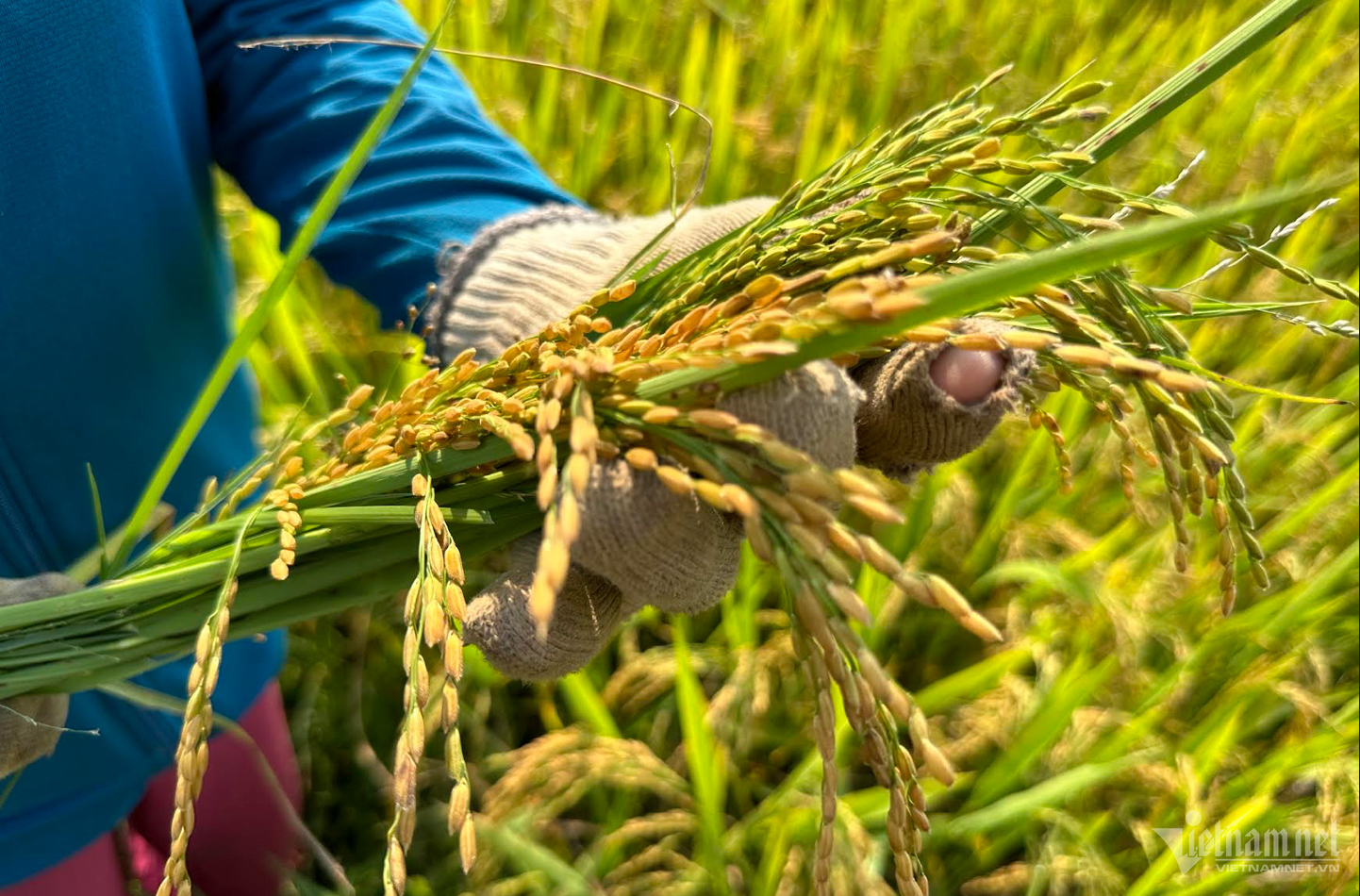The project, aimed at reducing greenhouse gas emissions and promoting green growth, has shown positive results in its initial phase.

On the afternoon of September 23, the Ministry of Agriculture and Rural Development (MARD) held a meeting to finalize the preparation for pilot implementation of greenhouse gas emission reductions under the Transformative Carbon Asset Facility (TCAF), supporting the project titled “Developing 1 Million Hectares of High-Quality, Low-Emission Rice Linked to Green Growth in the Mekong Delta by 2030.”
At the meeting, the Ministry’s Department of International Cooperation announced that on September 12, the TCAF management board sent a letter confirming the approval of Vietnam's Project Idea Note (PIN) to support the 1-million-hectare rice initiative.
The World Bank (WB) has proposed a working group visit from September 23 to October 2 to engage with MARD and relevant ministries on the next steps of cooperation.
Additionally, the TCAF has approved a total fund of $33.3 million, which could increase to $40 million, to be disbursed based on the project's results in two phases.
The commitment from the TCAF will be valid for 12 months. At the end of this period, the WB is expected to approve the funding by signing an Emission Reductions Payment Agreement (ERPA).
The first phase will see a disbursement of $15 million, which could rise to $18 million, with negotiations on the ERPA expected in May 2025. The second phase will involve $18.3 million, potentially increasing to $22 million.
In addition, the TCAF will provide $2 million in technical assistance, managed directly by the WB, to enhance Vietnam’s capacity in implementing Article 6 of the Paris Agreement, the MRV system (Measuring, Reporting, and Verifying), and other related requests.
Deputy Minister Tran Thanh Nam of MARD shared positive results from the project’s initial pilot phase, involving seven models across five provinces in the Mekong Delta. The first season showed promising results, with reduced input costs, increased rice prices, and higher incomes for farmers. The high-quality, low-emission rice produced under the pilot models was purchased by enterprises at prices higher than the market rate.
Preliminary emission reduction factors were also measured in the pilot models. The first pilot season, spanning approximately 300 hectares, has been harvested, and the next season will begin shortly. By the summer-autumn crop next year, MARD expects to announce the official emission reduction coefficient for rice cultivation.
Deputy Minister Nam emphasized that the success of the project has led to a positive shift in farmers’ perceptions. “Farmers are very enthusiastic and confident in the project. Many are excited to be a part of the low-emission rice initiative,” he said.

The ultimate goal of the project is to enhance the sustainability and value of Vietnamese rice, raise farmers' incomes, and ensure environmental protection, in line with Vietnam's commitments.
While MARD has not yet addressed the sale of rice carbon credits, the support provided by the TCAF is highly meaningful for farmers during the pilot phase. Deputy Minister Nam expressed the hope that the TCAF would support $20 million in payments during the first phase, as this would incentivize farmers to continue producing high-quality, low-emission rice.
Representatives from the WB affirmed their commitment to supporting Vietnam in implementing the 1-million-hectare rice project, with the goal of contributing to Vietnam's net-zero emissions target by 2050, as pledged by the government.
During the week, TCAF experts will conduct field visits to the pilot production areas to review the technical implementation. They will also discuss the methodology for measuring, reporting, and verifying (MRV) greenhouse gas emissions from rice production, in preparation for transferring and trading carbon credits with the TCAF and supporting Vietnam's Nationally Determined Contributions (NDC).
According to Deputy Minister Nam, 12 provinces in the Mekong Delta have developed production plans for the 1-million-hectare rice project, and the area eligible for carbon credits will rapidly expand. From the current pilot models, which have shown positive results, the project will be scaled up to other provinces. By 2025, the area of low-emission rice is expected to reach 200,000 hectares.
Nam also expressed his hope that TCAF experts will continue working with MARD officials to finalize details related to the project.
“We hope the carbon credit payments will be made soon to motivate farmers to expand production,” he said. Regarding the sale of rice carbon credits, Nam confirmed that when permitted, MARD will propose selling them to the TCAF first, as it has been a key partner in the project.
Tam An